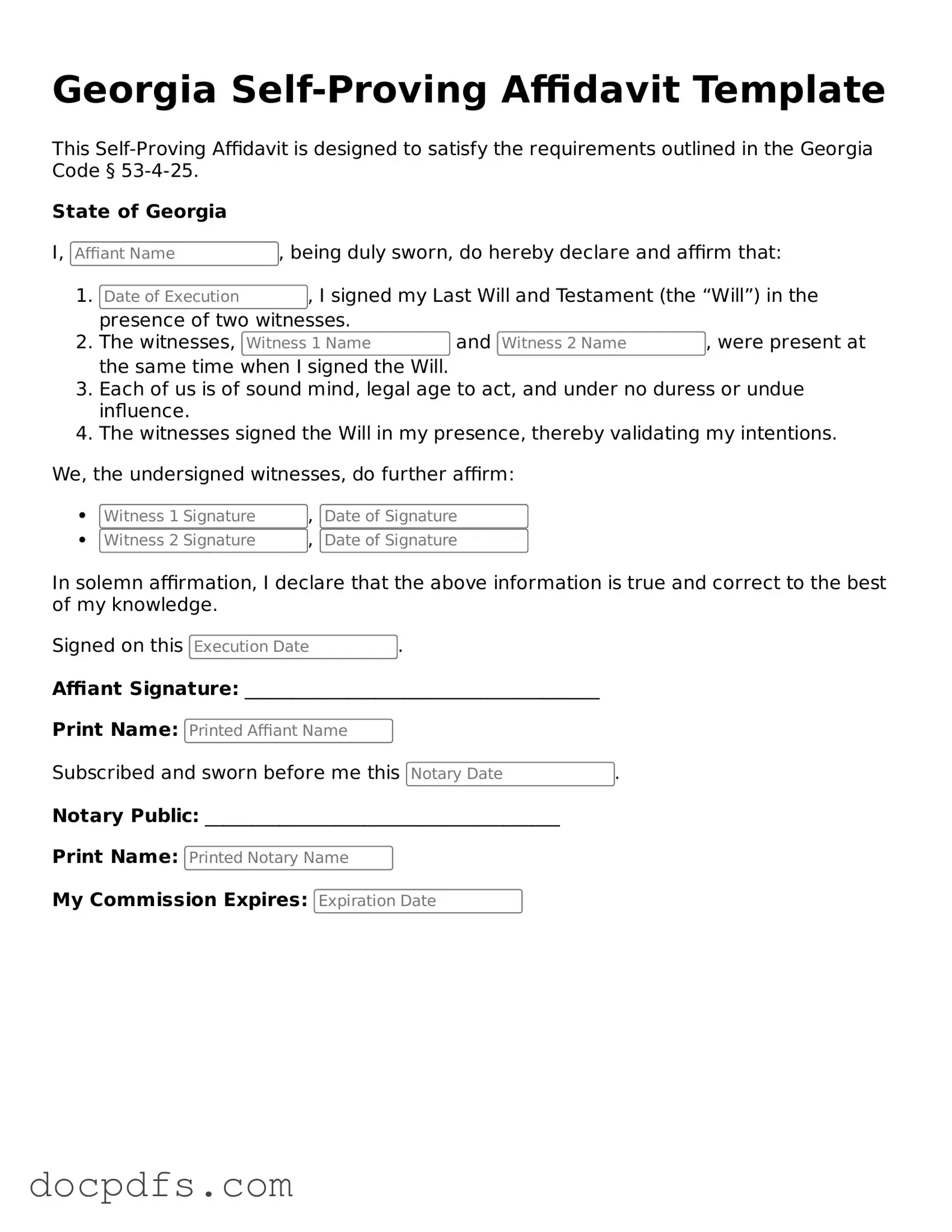Free Georgia Self-Proving Affidavit Form
The Georgia Self-Proving Affidavit is a legal document that allows a testator's will to be validated without the need for witnesses to testify in court. This form streamlines the probate process by providing a sworn statement from the witnesses and the testator, confirming the authenticity of the will. Utilizing this affidavit can save time and reduce complications during the probate proceedings.
Open Self-Proving Affidavit Editor Now

Free Georgia Self-Proving Affidavit Form
Open Self-Proving Affidavit Editor Now

Open Self-Proving Affidavit Editor Now
or
⇓ Self-Proving Affidavit
Finish this form the fast way
Complete Self-Proving Affidavit online with a smooth editing experience.